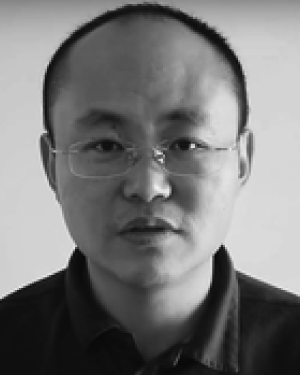Our study tackles achieving seamless W-TSN handovers for APs on different channels with a single-radio STA. We stress minimizing traffic disruption and self-traffic durin...
Abstract:
Undoubtedly, mobility remains a fundamental asset in wireless communications. Conversely, time-sensitive networking (TSN) represents a vital technology that enables deter...Show MoreMetadata
Abstract:
Undoubtedly, mobility remains a fundamental asset in wireless communications. Conversely, time-sensitive networking (TSN) represents a vital technology that enables determinism and low latency, fundamental for time-sensitive applications. In our study, we marry these two concepts by introducing a pioneering procedure that facilitates seamless roaming within a Wi-Fi-based Wireless Time-Sensitive Network (W-TSN). Through extensive real-world development and testing, we assess various techniques for optimizing handover moment selection and reducing handover delay. Our findings demonstrate that an integrated approach combining Received Signal Strength Indication (RSSI) and location-based online reduces the need for traditional channel scanning. This approach surpasses the offline and midpoint selection methods, excelling in identifying the optimal handover point and reducing handover delay to less than 20 milliseconds.
Our study tackles achieving seamless W-TSN handovers for APs on different channels with a single-radio STA. We stress minimizing traffic disruption and self-traffic durin...
Published in: IEEE Access ( Volume: 12)
Funding Agency:

Department of Information Technology, Ghent University—imec, Ghent, IDLab, Belgium
Pablo Avila-Campos received the bachelor’s degree in electronics and telecommunications from the University of Cuenca, in 2017, and the master’s degree in wireless communications from the University of Southampton, in 2019. He is currently pursuing the Ph.D. degree in time-sensitive networking with the Internet Technology and Data Science Laboratory (IDLab), Ghent University—imec. His primary research interests include de...Show More
Pablo Avila-Campos received the bachelor’s degree in electronics and telecommunications from the University of Cuenca, in 2017, and the master’s degree in wireless communications from the University of Southampton, in 2019. He is currently pursuing the Ph.D. degree in time-sensitive networking with the Internet Technology and Data Science Laboratory (IDLab), Ghent University—imec. His primary research interests include de...View more

Department of Information Technology, Ghent University—imec, Ghent, IDLab, Belgium
Jetmir Haxhibeqiri (Member, IEEE) received the master’s degree in engineering (information technology and computer engineering) from RWTH Aachen University, Germany, in 2013, and the Ph.D. degree in computer science engineering from Ghent University, in 2019, with his research on flexible and scalable wireless communication solutions for industrial warehouses and logistics applications. Currently, he is a Senior Researche...Show More
Jetmir Haxhibeqiri (Member, IEEE) received the master’s degree in engineering (information technology and computer engineering) from RWTH Aachen University, Germany, in 2013, and the Ph.D. degree in computer science engineering from Ghent University, in 2019, with his research on flexible and scalable wireless communication solutions for industrial warehouses and logistics applications. Currently, he is a Senior Researche...View more

Department of Information Technology, Ghent University—imec, Ghent, IDLab, Belgium
Xianjun Jiao received the bachelor’s degree in electrical engineering from Nankai University, in 2001, and the Ph.D. degree in communications and information system from Peking University, in 2006. After his studies, he worked in industrial research institutes and product teams in the domain of wireless technology, such as Radio System Laboratory, Nokia Research Center (a Senior Researcher), Devices Department of Microsof...Show More
Xianjun Jiao received the bachelor’s degree in electrical engineering from Nankai University, in 2001, and the Ph.D. degree in communications and information system from Peking University, in 2006. After his studies, he worked in industrial research institutes and product teams in the domain of wireless technology, such as Radio System Laboratory, Nokia Research Center (a Senior Researcher), Devices Department of Microsof...View more

Department of Information Technology, Ghent University—imec, Ghent, IDLab, Belgium
Ben Van Herbruggen was born in Antwerp, in 1995. He received the M.Sc. degree in electrical engineering from Ghent University, Belgium, in July 2018. He is currently pursuing the Ph.D. degree with the IDLab Research Group. In September 2018, he started as a Research Assistant with the IDLab Research Group, Department of Information Technology (INTEC), Ghent University. His scientific work is focused on the use of energy h...Show More
Ben Van Herbruggen was born in Antwerp, in 1995. He received the M.Sc. degree in electrical engineering from Ghent University, Belgium, in July 2018. He is currently pursuing the Ph.D. degree with the IDLab Research Group. In September 2018, he started as a Research Assistant with the IDLab Research Group, Department of Information Technology (INTEC), Ghent University. His scientific work is focused on the use of energy h...View more

Department of Information Technology, Ghent University—imec, Ghent, IDLab, Belgium
Ingrid Moerman (Senior Member, IEEE) received the degree in electrical engineering and the Ph.D. degree from Ghent University, in 1987 and 1992, respectively. She became a part-time Professor with Ghent University, in 2000. She is currently a Staff Member of IDLab, a core research group of imec with research activities embedded with Ghent University and University of Antwerp. She is coordinating the research activities on...Show More
Ingrid Moerman (Senior Member, IEEE) received the degree in electrical engineering and the Ph.D. degree from Ghent University, in 1987 and 1992, respectively. She became a part-time Professor with Ghent University, in 2000. She is currently a Staff Member of IDLab, a core research group of imec with research activities embedded with Ghent University and University of Antwerp. She is coordinating the research activities on...View more

Department of Information Technology, Ghent University—imec, Ghent, IDLab, Belgium
Jeroen Hoebeke received the master’s degree in computer science engineering from Ghent University, in 2002, and the Ph.D. degree in computer science engineering from Ghent University, in 2007, with his research on adaptive ad-hoc routing and virtual private ad-hoc networks. Currently, he is an Associate Professor with the Internet Technology and Data Science Laboratory, Ghent University—imec. He is conducting and coordina...Show More
Jeroen Hoebeke received the master’s degree in computer science engineering from Ghent University, in 2002, and the Ph.D. degree in computer science engineering from Ghent University, in 2007, with his research on adaptive ad-hoc routing and virtual private ad-hoc networks. Currently, he is an Associate Professor with the Internet Technology and Data Science Laboratory, Ghent University—imec. He is conducting and coordina...View more

Department of Information Technology, Ghent University—imec, Ghent, IDLab, Belgium
Pablo Avila-Campos received the bachelor’s degree in electronics and telecommunications from the University of Cuenca, in 2017, and the master’s degree in wireless communications from the University of Southampton, in 2019. He is currently pursuing the Ph.D. degree in time-sensitive networking with the Internet Technology and Data Science Laboratory (IDLab), Ghent University—imec. His primary research interests include deterministic wireless communications within mixed wireless-wired environments, with a specific emphasis on the IEEE 802.11 standard, the seamless integration of Internet of Things (IoT) technologies, and the application of machine learning in wireless communications.
Pablo Avila-Campos received the bachelor’s degree in electronics and telecommunications from the University of Cuenca, in 2017, and the master’s degree in wireless communications from the University of Southampton, in 2019. He is currently pursuing the Ph.D. degree in time-sensitive networking with the Internet Technology and Data Science Laboratory (IDLab), Ghent University—imec. His primary research interests include deterministic wireless communications within mixed wireless-wired environments, with a specific emphasis on the IEEE 802.11 standard, the seamless integration of Internet of Things (IoT) technologies, and the application of machine learning in wireless communications.View more

Department of Information Technology, Ghent University—imec, Ghent, IDLab, Belgium
Jetmir Haxhibeqiri (Member, IEEE) received the master’s degree in engineering (information technology and computer engineering) from RWTH Aachen University, Germany, in 2013, and the Ph.D. degree in computer science engineering from Ghent University, in 2019, with his research on flexible and scalable wireless communication solutions for industrial warehouses and logistics applications. Currently, he is a Senior Researcher with the Internet Technology and Data Science Laboratory (IDLab), Ghent University—imec. His current research interests include wireless communications technologies (IEEE 802.11, IEEE 802.15.4e, and LoRa) and their application, the IoT, wireless time sensitive networking, in-band network monitoring, and wireless network management.
Jetmir Haxhibeqiri (Member, IEEE) received the master’s degree in engineering (information technology and computer engineering) from RWTH Aachen University, Germany, in 2013, and the Ph.D. degree in computer science engineering from Ghent University, in 2019, with his research on flexible and scalable wireless communication solutions for industrial warehouses and logistics applications. Currently, he is a Senior Researcher with the Internet Technology and Data Science Laboratory (IDLab), Ghent University—imec. His current research interests include wireless communications technologies (IEEE 802.11, IEEE 802.15.4e, and LoRa) and their application, the IoT, wireless time sensitive networking, in-band network monitoring, and wireless network management.View more

Department of Information Technology, Ghent University—imec, Ghent, IDLab, Belgium
Xianjun Jiao received the bachelor’s degree in electrical engineering from Nankai University, in 2001, and the Ph.D. degree in communications and information system from Peking University, in 2006. After his studies, he worked in industrial research institutes and product teams in the domain of wireless technology, such as Radio System Laboratory, Nokia Research Center (a Senior Researcher), Devices Department of Microsoft (a Senior Researcher), and Wireless Software Engineering Department, Apple (a RF Software Engineer). In 2016, he joined IDLab, a core research group of imec with research activities embedded in Ghent University and University of Antwerp. He is currently a Postdoctoral Researcher with Ghent University on flexible real-time SDR platform. His main research interests include SDR and parallel/heterogeneous computation in wireless communications. On his research track, more than 20 international patents and articles have been authored/published.
Xianjun Jiao received the bachelor’s degree in electrical engineering from Nankai University, in 2001, and the Ph.D. degree in communications and information system from Peking University, in 2006. After his studies, he worked in industrial research institutes and product teams in the domain of wireless technology, such as Radio System Laboratory, Nokia Research Center (a Senior Researcher), Devices Department of Microsoft (a Senior Researcher), and Wireless Software Engineering Department, Apple (a RF Software Engineer). In 2016, he joined IDLab, a core research group of imec with research activities embedded in Ghent University and University of Antwerp. He is currently a Postdoctoral Researcher with Ghent University on flexible real-time SDR platform. His main research interests include SDR and parallel/heterogeneous computation in wireless communications. On his research track, more than 20 international patents and articles have been authored/published.View more

Department of Information Technology, Ghent University—imec, Ghent, IDLab, Belgium
Ben Van Herbruggen was born in Antwerp, in 1995. He received the M.Sc. degree in electrical engineering from Ghent University, Belgium, in July 2018. He is currently pursuing the Ph.D. degree with the IDLab Research Group. In September 2018, he started as a Research Assistant with the IDLab Research Group, Department of Information Technology (INTEC), Ghent University. His scientific work is focused on the use of energy harvesters for wireless networking and indoor localization systems based on ultra-wideband technology. He is the author or coauthor of various publications on ultra-wideband localization solutions.
Ben Van Herbruggen was born in Antwerp, in 1995. He received the M.Sc. degree in electrical engineering from Ghent University, Belgium, in July 2018. He is currently pursuing the Ph.D. degree with the IDLab Research Group. In September 2018, he started as a Research Assistant with the IDLab Research Group, Department of Information Technology (INTEC), Ghent University. His scientific work is focused on the use of energy harvesters for wireless networking and indoor localization systems based on ultra-wideband technology. He is the author or coauthor of various publications on ultra-wideband localization solutions.View more

Department of Information Technology, Ghent University—imec, Ghent, IDLab, Belgium
Ingrid Moerman (Senior Member, IEEE) received the degree in electrical engineering and the Ph.D. degree from Ghent University, in 1987 and 1992, respectively. She became a part-time Professor with Ghent University, in 2000. She is currently a Staff Member of IDLab, a core research group of imec with research activities embedded with Ghent University and University of Antwerp. She is coordinating the research activities on intelligent wireless networking (iWiNe) with Ghent University, where she is leading a team of more than 30 researchers. She is also the Program Manager of the Deterministic Networkingtrack, part of the Connectivity Program, imec, and in this role she coordinates research activities on end-to-end wired/wireless networking solutions driven by business- and mission critical applications that have to meet strict quality of service requirements in terms of throughput, bounded latency, and reliability in private wireless environments. She has a longstanding experience in running and coordinating national and EU research funded projects.
Ingrid Moerman (Senior Member, IEEE) received the degree in electrical engineering and the Ph.D. degree from Ghent University, in 1987 and 1992, respectively. She became a part-time Professor with Ghent University, in 2000. She is currently a Staff Member of IDLab, a core research group of imec with research activities embedded with Ghent University and University of Antwerp. She is coordinating the research activities on intelligent wireless networking (iWiNe) with Ghent University, where she is leading a team of more than 30 researchers. She is also the Program Manager of the Deterministic Networkingtrack, part of the Connectivity Program, imec, and in this role she coordinates research activities on end-to-end wired/wireless networking solutions driven by business- and mission critical applications that have to meet strict quality of service requirements in terms of throughput, bounded latency, and reliability in private wireless environments. She has a longstanding experience in running and coordinating national and EU research funded projects.View more

Department of Information Technology, Ghent University—imec, Ghent, IDLab, Belgium
Jeroen Hoebeke received the master’s degree in computer science engineering from Ghent University, in 2002, and the Ph.D. degree in computer science engineering from Ghent University, in 2007, with his research on adaptive ad-hoc routing and virtual private ad-hoc networks. Currently, he is an Associate Professor with the Internet Technology and Data Science Laboratory, Ghent University—imec. He is conducting and coordinating research on wireless (IoT) connectivity, embedded communication stacks, deterministic wireless communication, and wireless network management. He is the author or coauthor of more than 150 publications in international journals or conference proceedings.
Jeroen Hoebeke received the master’s degree in computer science engineering from Ghent University, in 2002, and the Ph.D. degree in computer science engineering from Ghent University, in 2007, with his research on adaptive ad-hoc routing and virtual private ad-hoc networks. Currently, he is an Associate Professor with the Internet Technology and Data Science Laboratory, Ghent University—imec. He is conducting and coordinating research on wireless (IoT) connectivity, embedded communication stacks, deterministic wireless communication, and wireless network management. He is the author or coauthor of more than 150 publications in international journals or conference proceedings.View more

